

Catechism of the Catholic Church - PART 2 SECTION 1 CHAPTER 1 ARTICLE 2. Catechism of the Catholic Church - The paschal mistery in the Church's sacraments. 1114 "Adhering to the teaching of the Holy Scriptures, to the apostolic traditions, and to the consensus . . . of the Fathers," we profess that "the sacraments of the new law were . . . all instituted by Jesus Christ our Lord.
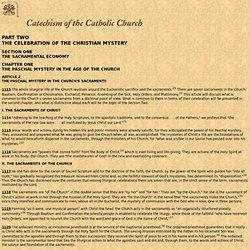
"31 The People of God is formed into one in the first place by the Word of the living God. . . . The preaching of the Word is required for the sacramental ministry itself, since the sacraments are sacraments of faith, drawing their origin and nourishment from the Word.43 St. Thomas sums up the various aspects of sacramental signs: "Therefore a sacrament is a sign that commemorates what precedes it - Christ's Passion; demonstrates what is accomplished in us through Christ's Passion - grace; and prefigures what that Passion pledges to us - future glory. "58 1131 The sacraments are efficacious signs of grace, instituted by Christ and entrusted to the Church, by which divine life is dispensed to us. 1134 The fruit of sacramental life is both personal and ecclesial.
Sacrifice-Banquet of the New Covenant. Jeremiah 31:31-34 ESV - The New Covenant - “Behold, the days. Page Options Add parallel Jeremiah 31:31-34 English Standard Version (ESV)
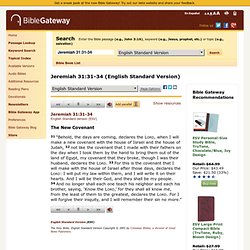
The Covenant of Eucharist. Was Jesus’ Last Supper a Seder? Read Jonathan Klawans’s article “Was Jesus’ Last Supper a Seder?”
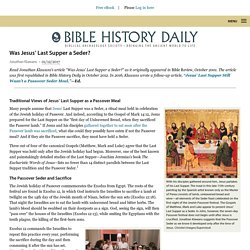
As it originally appeared in Bible Review, October 2001. The article was first republished in Bible History Daily in October 2012. In 2016, Klawans wrote a follow-up article, “Jesus’ Last Supper Still Wasn’t a Passover Seder Meal.” —Ed. Traditional Views of Jesus’ Last Supper as a Passover Meal With his disciples gathered around him, Jesus partakes of his Last Supper. Many people assume that Jesus’ Last Supper was a Seder, a ritual meal held in celebration of the Jewish holiday of Passover. THE LAST SUPPER OF OUR LORD. TWO DIVINE PROMISES. The Two Divine Promises PROMISE: "Each priest who worthily offers the Holy Sacrifice of the Mass for 30 consecutive days and, in addition, makes the Stations of the Cross daily, will receive for himself: and another soul selected by him, the assurance of eternal salvation.
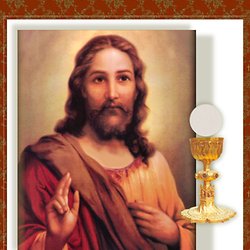
" PROMISE: "Likewise, each individual who will receive Holy Communion worthily for 30 consecutive days, and will recite one Our Father and Hail Mary for the welfare of the Holy Catholic Church, will receive for himself and one other soul selected by him, the assurance of eternal salvation. " -----Words of Our Lord to a Polish soul The Two Divine Promises are a private revelation. Are we duty-bound by Faith to believe in them? Can we be hurt spiritually by making this devotion? The important question here is whether God has in fact bound Himself to grant the results which this devotion claims for itself. Www.catholictradition.org/Christ/divine-promises.htm. The Paschal Mystery: God's Wonderful Plan. Each time Roman Catholics gather to celebrate the holy Eucharist, we’re invited to acclaim the “mystery of faith” at the very heart of the celebration.
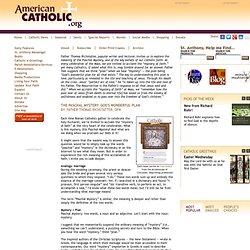
What is this mystery, this Paschal Mystery? And what are we doing when we proclaim our faith in it? It might seem that the easiest way to answer this question would be to simply look up the words “paschal” and “mystery” in the dictionary or on the Internet to see what they mean. But in order to experience the rich meaning of this acclamation of faith, I invite you to look deeper. Analogy: marriageDuring the wedding ceremony, the priest or deacon asks the bride and groom several very serious questions to which they respond, “I do.”
The Paschal Mystery in Everyday Life. The liturgy of the Church, the celebration of the sacraments, and the seasons of Lent and Easter are particular times when we pay attention to what Jesus Christ has done for us through his passion, death, Resurrection, and Ascension.
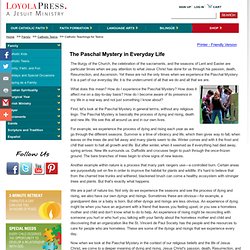
Yet these are not the only times when we experience the Paschal Mystery. It is a part of our everyday life; it is the undercurrent of all that we do and all that we are. What does this mean?